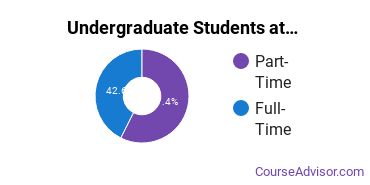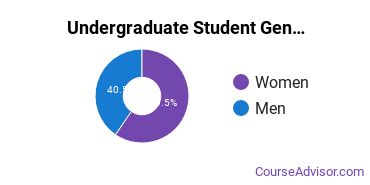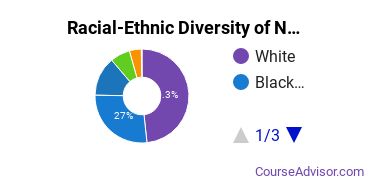Nashville State Community College Overview
Nashville State Community College is a public institution situated in Nashville, Tennessee. The location of the school is great for students who enjoy the amenities of city life.
What Is Nashville State Community College Known For?
- The highest award offered at Nashville State Community College is the associate's degree.
- During a recent academic cycle, 40% of the faculty were full-time.
Where Is Nashville State Community College?

Contact details for Nashville State Community College are given below.
| Contact Details | |
|---|---|
| Address: | 120 White Bridge Rd, Nashville, TN 37209-4515 |
| Phone: | 615-353-3333 |
| Website: | www.nscc.edu |
How Do I Get Into Nashville State Community College?
You can apply to Nashville State Community College online at: https://apply.nscc.edu/apply/
Can I Afford Nashville State Community College?
Student Loan Debt
While almost two-thirds of students nationwide take out loans to pay for college, the percentage may be quite different for the school you plan on attending. At Nashville State Community College, approximately 5% of students took out student loans averaging $11,781 a year. That adds up to $47,124 over four years for those students.
Explore Best Ranked Schools for You
Nashville State Community College Undergraduate Student Diversity

Gender Diversity
Of the 2,984 full-time undergraduates at Nashville State Community College, 40% are male and 60% are female.

Racial-Ethnic Diversity
The racial-ethnic breakdown of Nashville State Community College students is as follows.

| Race/Ethnicity | Number of Grads |
|---|---|
| Asian | 132 |
| Black or African American | 820 |
| Hispanic or Latino | 379 |
| White | 1,453 |
| International Students | 9 |
| Other Races/Ethnicities | 191 |
Over 14 countries are represented at Nashville State Community College. The most popular countries sending students to the school are Vietnam, South Korea, and Angola.
Nashville State Community College Undergraduate Concentrations
The table below shows the number of awards for each concentration.
References
*The racial-ethnic minorities count is calculated by taking the total number of students and subtracting white students, international students, and students whose race/ethnicity was unknown. This number is then divided by the total number of students at the school to obtain the racial-ethnic minorities percentage.
More about our data sources and methodologies.
